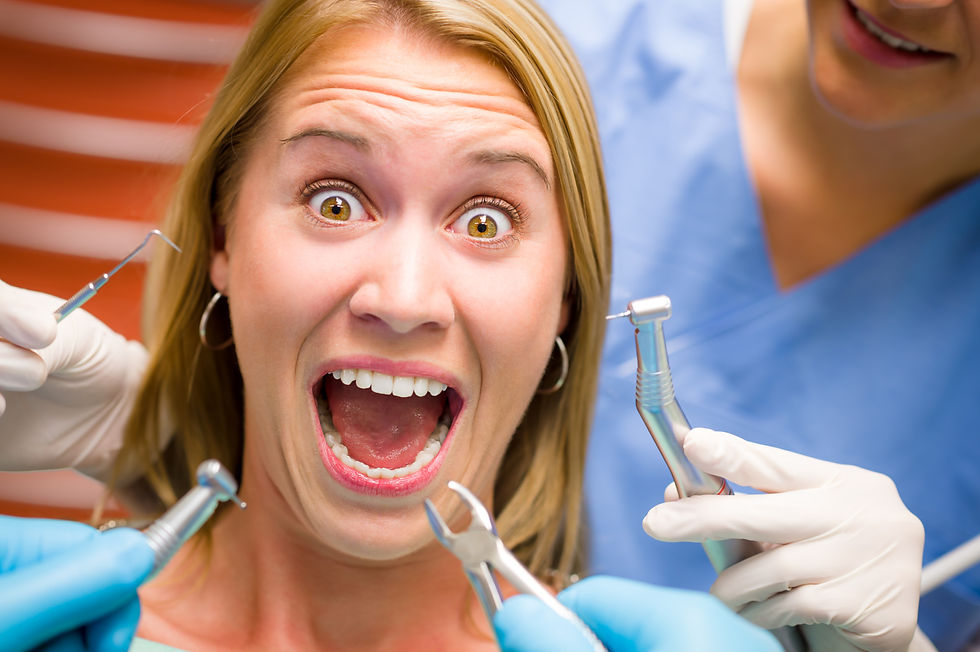DENTAL FEAR!
- Dr. Femi Folayan
- Jun 21, 2018
- 2 min read
Dental Phobia

An estimated 20% of Americans have some sort of fear related to dentistry which make them avoid going to the dentist.
Dental phobia often leaves patients panic stricken, terrified, overwhelmed even when these fears are totally irrational and not based on any prior experience. Too many times we have seen patients who pass out in the Dental chair from holding their breath while the dentist approached with anesthetic. People with dental phobia will therefore display avoidance behavior, denial and refusal to seek help until extreme pain or severe infections develop.
Some causes of dental phobia include among others;
The fear of pain: This may stem from an earlier experience by the patient or from stories told by others, thanks to advances in dentistry, most of today's procedures are considerably pain free. Topical anesthetic ( gel ) numbs the tissue before any needle ever touches the tissue, the anesthetic is delivered in a controlled manner and is effective in completely numbing patients tooth.
The fear of injection: Some patients are terrified of needles and would hyperventilate to the point of depriving the brain of oxygen and may even pass out. For these patients the mere sight of needle is enough to create phobia. It may be effective if these types of patients never see the anesthetic needle as well as talking them through the procedure.
Feeling of loss of control: Being seated in a chair, mouth open for procedure leaves some patients feeling vulnerable to the extent of phobia, often times giving some control back to these patients eases or eliminates their phobia. Have patient hold a suction, make them feel involved and part of the process, having them raise a hand if they need to stop or even take multiple breaks.
Several methods of managing these phobias are available to the patient, these can include mild oral sedatives, Nitrous Oxide, complete sedation but each option begins with a conversation about the nature of your fears, once your dentist knows what these fears are, they are better able to prescribe and deliver your care in the most comfortable way.







Comments